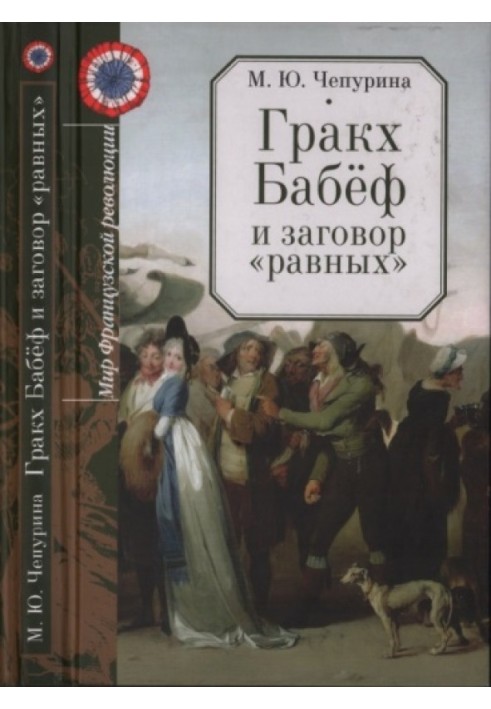Gracchus Babeuf and the conspiracy of “equals”
 Instant download
Instant download
after payment (24/7)
 Wide range of formats
Wide range of formats
(for all gadgets)
 Full book
Full book
(including for Apple and Android)
People of the late 18th century. could not find a suitable word to describe Babeuf's friends, since he did not yet exist. Only the next century, the 19th century, will give birth to this word. Even more frightening than before, it will travel across Europe, and a hundred years after Babeuf’s death it will reach Russia. In the 20th century, it will already be familiar to all schoolchildren, and some will begin to pronounce it with hatred, while others with delight. This word is COMMUNISTS. At the turn of the century, when the age of white wigs had already ended, and the age of black frock coats had not yet arrived, when Robespierre was already in his grave, and Bonaparte had not yet thought about power, when Paul was about to take the place of Catherine II, and the steam engine was about to replace horse traction, a bunch of strange Frenchmen, for the first time in history, made an attempt to build a society on the scale of an entire state , based on collective property. However, is it a bunch? And were they really that strange for their era? These questions will be among many that we will try to answer in this book. The book by M. Yu. Chepurina is dedicated to G. Babeuf and the conspiracy of “equals” organized by him in 1796. This conspiracy (which at the same time had the features of a large-scale social movement) was a reaction to the disappointments that Thermidor and the Directory turned out to be for the urban poor, as well as the first attempt in history to establish a communist order on a national scale. The book explores the intellectual evolution of the leader of the “equals,” which led him from the idea of human rights and freedom of opinion to the idea of the need for dictatorship and instilling the “correct” views in the people. The multi-stage structure of the conspiracy and the daily activities of the “equals” were reconstructed. Particular attention is paid to the interaction of the conspirators with the public and their perception by the French public. The monograph is based on a wide range of sources, both published and archival. For historians, history teachers, students and a wide range of readers.
Data sheet
- Name of the Author
- Мария Чепурина Юрьевна
- Language
- Russian
Reviews
Вражаюче дослідження історії та ідеології
Книга "Гракх Бабеф та змова «рівних»" є справжнім відкриттям для тих, хто цікавиться історією політичних ідей та соціальних рухів. Автор детально аналізує еволюцію думок Бабефа та його однодумців, показуючи, як їхні ідеали прав людини і свободи поступово трансформувалися в концепцію колективної власності та диктатури. Це не просто історичний нарис, а глибоке дослідження, яке дозволяє читачеві зрозуміти, чому та як виникли перші спроби встановлення комуністичного порядку у Франції. Важливою частиною книги є реконструкція структури змови та повсякденного життя її учасників, що робить матеріал ще більш захоплюючим. Особливо вражає те, як автор використовує широкий спектр джерел, що надає монографії наукової достовірності та глибини. Рекомендую цю книгу не лише історикам та студентам, але й усім, хто прагне зрозуміти корені сучасних соціальних і політичних рухів.

























